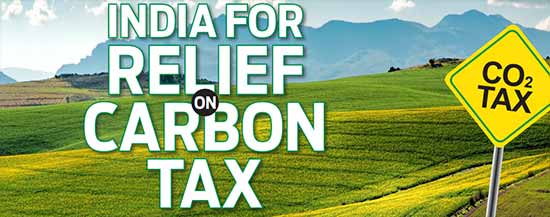Team Blitz India
In an assertive move to safeguard its economic interests, India is negotiating with the United Kingdom for relief measures against the impending Carbon Border Adjustment Mechanism (CBAM), slated for implementation in 2027. The development emerges as the two countries edge closer to finalising a Free Trade Agreement (FTA).
The CBAM, a cornerstone of the UK’s climate strategy, aims to levy a carbon tax on imports of products such as iron, steel, aluminum, fertilisers, and cement, calculated based on their carbon footprint.
The move is critical for the UK’s commitment to combat climate change and reach net-zero emissions by 2050. India’s request for relief measures, including a longer transition period and the repatriation of taxes collected from Indian exporters, is integral to the ongoing FTA negotiations. Officials argue that the carbon levy would negate the benefits of the FTA, which involves substantial tariff reductions.
Need for balance
The Indian stance highlights the need for a mechanism to balance the FTA’s benefits against the potential impact of the CBAM.
However, experts like Ajay Srivastava, a former trade ministry official, caution that the UK Government is unlikely to acquiesce to India’s requests. Granting such concessions would harm the CBAM’s integrity and set a precedent for other countries.
The FTA negotiations, hoped to be finalised by February – ahead of the Lok Sabha elections – face several challenges. Apart from the CBAM, contentious issues include rules of origin, intellectual property rights, and goods and services.
The UK’s demand for significant market access, especially in sectors like whisky and automobiles, including electric vehicles, adds complexity to the discussions.
The situation underscores a broader global challenge of balancing environmental commitments with economic growth. India’s efforts in the negotiations reflect its strategic approach to international trade agreements, ensuring economic benefits while navigating new environmental policies.
The outcome of these talks will be pivotal in shaping India-UK trade relations and could influence global trade and environmental policy frameworks.
















